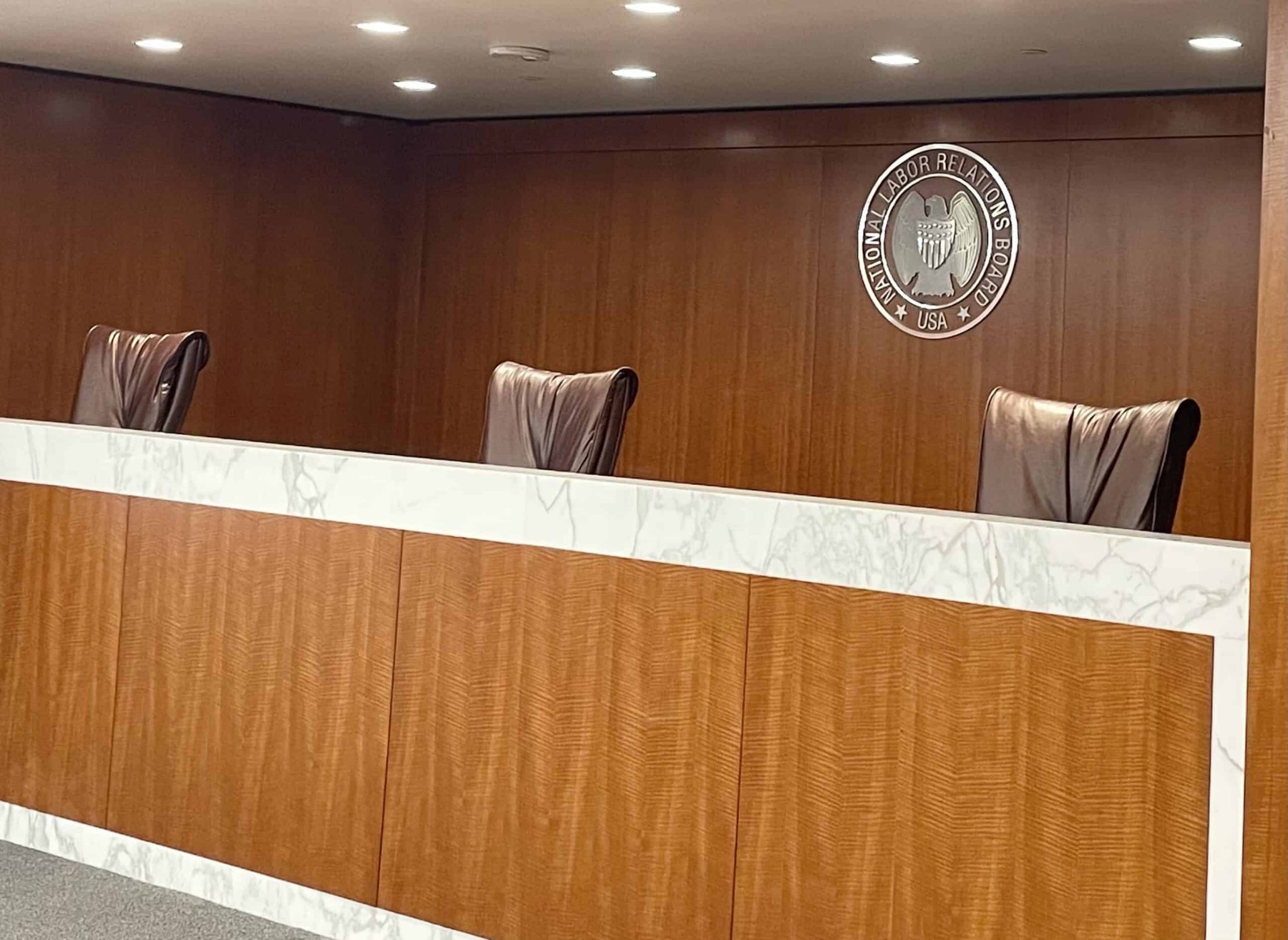
Tascha Shahriari-Parsa is a student at Harvard Law School.
In today’s news and commentary: The GC Abruzzo releases a memo on 10(j) settlements; Amazon workers vote against unionization; an internal Starbucks survey shows office workers’ faith in the company is at an all-time low.
Jennifer Abruzzo, General Counsel of the NLRB, released a memo yesterday instructing Regions to attempt to reach settlements with employers on interim remedies even when they cannot reach an overall settlement on the entire case. Section 10(j) of the NLRA gives the Board the power to petition a federal district court to seek an injunction for temporary relief or for a restraining order. Previous memos have referred to 10(j) as “one of the most important tools available to effectively enforce the Act.” Back in February, Abruzzo released a memo calling for the earlier and more frequent utilization of 10(j), writing that “it is incumbent upon the Agency to consider seeking Section 10(j) injunctions immediately after determining that workers have been subject to threats or other coercive conduct during an organizing campaign, before an employer follows through on its threats or coercion when it becomes more challenging to fully erase the chilling impact on organizing activity.” In August, another GC memo highlighted specific types of ULPs that “are more likely than others to lead to remedial failure” and thus should be prioritized for 10(j) proceedings, including: “discharges that occur during an organizing campaign, violations during organizing campaigns that lead to a need for a Gissel bargaining order, violations that occur during the period following certification when parties should be attempting to negotiate their first collective bargaining agreement, cases involving withdrawals of recognition from incumbent unions, and cases involving a successor’s refusal to bargain and/or refusal to hire.”
This new memo covers the topic of 10(j) settlements. Where Regions are unable to settle an entire administrative case, the memo asks them to give charged parties “the opportunity to voluntarily agree to an interim settlement that includes remedies, such as reinstating alleged discriminates or agreeing to bargain, pending final resolution of the administrative case by the Board.” Though in some instances, if Regions “determine that taking the time and resources to seek an interim settlement is futile, as in cases where the Region has reason to believe that a charged party would not agree or adhere to the terms of an interim settlement,” the Region can recommend bringing a 10(j) proceeding directly to court. And even where a 10(j) settlement is reached, “should a charged party breach the terms of the settlement, Regions will retain the right to recommend initiation of 10(j) proceedings in court.”
On Tuesday, workers at an Amazon warehouse in Schodack, New York voted against unionization with the Amazon Labor Union (ALU). Workers at the facility received a $1.30 hourly raise last month, bringing their wages up to $17/hour. But as the campaign’s lead organizer Heather Goodall put it, workers have been “missing the mark on quality of life” and deserve to have better wages, working conditions, and “breaks consistent with the work that we are doing.” In response to the defeat, ALU founder Chris Smalls affirmed that this “won’t be the end of ALU at ALB1.” ALU plans to challenge the election as being tainted by employer intimidation and retaliation “on a daily basis.” Amazon fired many pro-union workers at the warehouse leading up to the election, and subjected workers to anti-union propaganda in captive audience meetings.
An internal survey at Starbucks showed that white collar employees’ faith in management is at a historic low. Nearly half of office workers filling out a survey said they didn’t believe Starbucks “behaves in an ethical and responsible manner,” and more than half did not think Starbucks “lives up to its mission and values” and over three-quarters did not believe that “Starbucks leaders make the right decisions for the company.” Starbucks has meanwhile been the subject of dozens of complaints at the NLRB, with a recent ALJ decision finding that Starbucks unlawfully targeted and discriminated against workers for engaging in union activity by telling them they wouldn’t get wage increases promised to non-union workers if they unionized, illegally terminating and constructively discharging workers for union activity, changing their enforcement of a dress code and rule regarding calling out drink orders, suggesting to employees that engaging in union activity was essentially compatible with their continued employment, refusing to accommodate work schedules that they had allowed prior to a union election, and even asking a hotel manager to call police on employees congregating in front of the hotel.






Daily News & Commentary
Start your day with our roundup of the latest labor developments. See all
June 30
Antidiscrimination scholars question McDonnell Douglas, George Washington University Hospital bargained in bad faith, and NY regulators defend LPA dispensary law.
June 29
In today’s news and commentary, Trump v. CASA restricts nationwide injunctions, a preliminary injunction continues to stop DOL from shutting down Job Corps, and the minimum wage is set to rise in multiple cities and states. On Friday, the Supreme Court held in Trump v. CASA that universal injunctions “likely exceed the equitable authority that […]
June 27
Labor's role in Zohran Mamdani's victory; DHS funding amendment aims to expand guest worker programs; COSELL submission deadline rapidly approaching
June 26
A district judge issues a preliminary injunction blocking agencies from implementing Trump’s executive order eliminating collective bargaining for federal workers; workers organize for the reinstatement of two doctors who were put on administrative leave after union activity; and Lamont vetoes unemployment benefits for striking workers.
June 25
Some circuits show less deference to NLRB; 3d Cir. affirms return to broader concerted activity definition; changes to federal workforce excluded from One Big Beautiful Bill.
June 24
In today’s news and commentary, the DOL proposes new wage and hour rules, Ford warns of EV battery manufacturing trouble, and California reaches an agreement to delay an in-person work mandate for state employees. The Trump Administration’s Department of Labor has advanced a series of proposals to update federal wage and hour rules. First, the […]